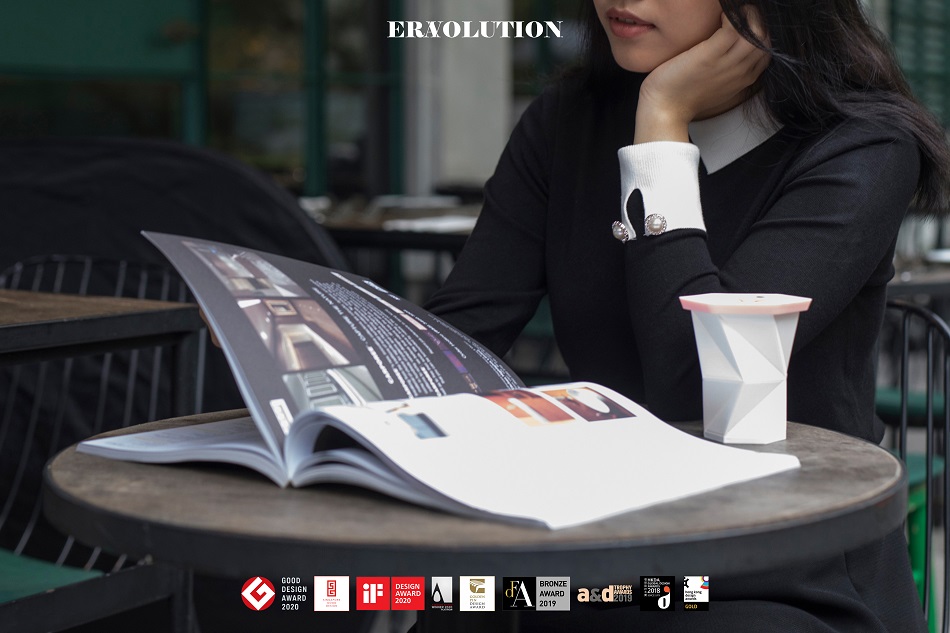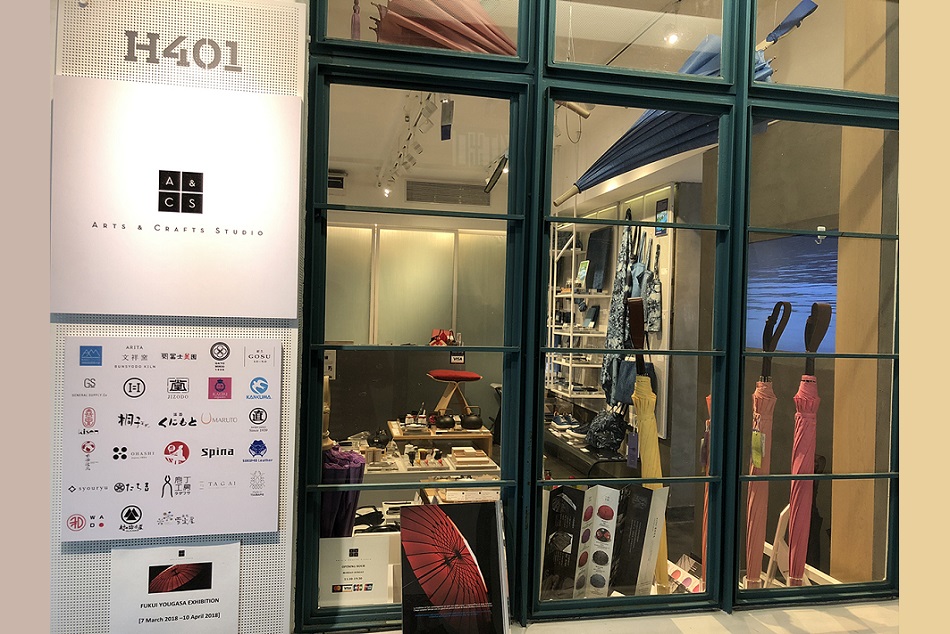Leisure & Culture #87
The Bittersweet Symphony of Specialty Coffee Shops in Hong Kong
Ah Kwan & Jaco & Chloe
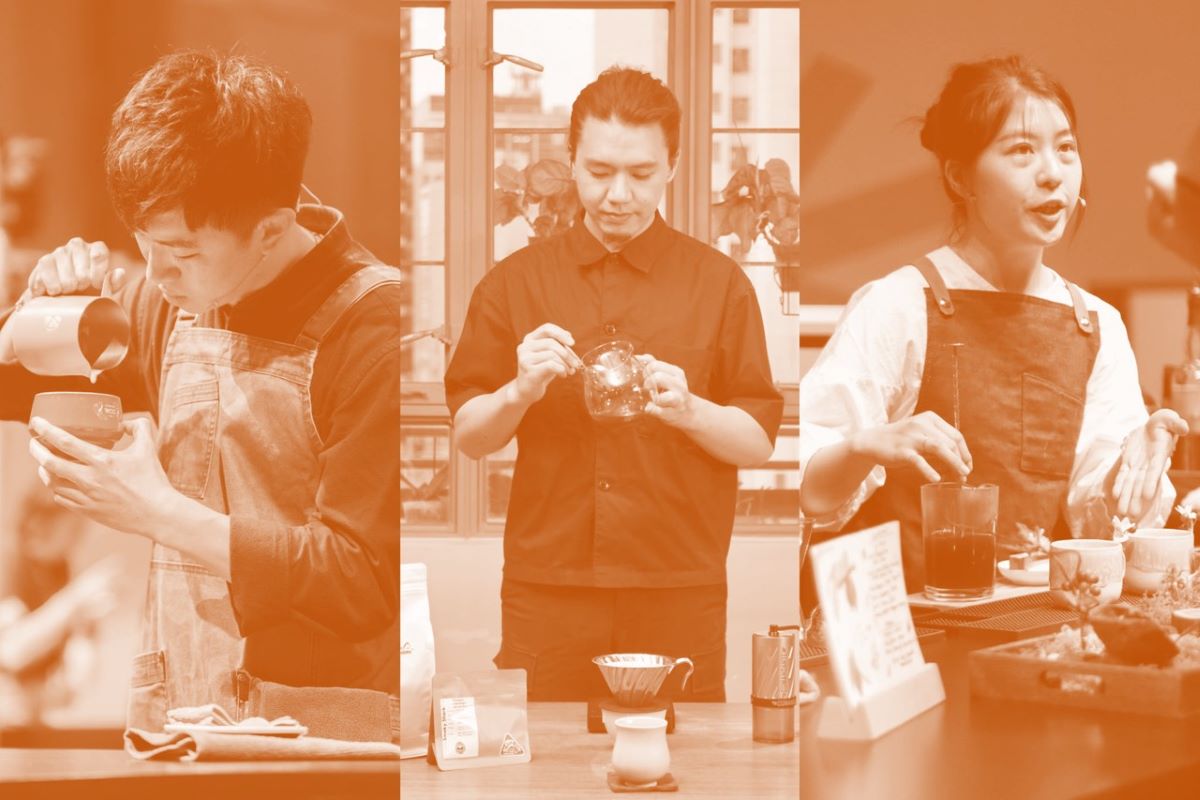
Text: TL ling
Translated by: Joel Wong
Image: TL Ling & Interviewees
During the pandemic lockdown in Hong Kong a few years ago, boutique cafes became extremely popular as "local tours" became the only entertainment option for the public. People enjoyed checking in and sipping coffee at cafes. Hong Kong has had a specialty coffee culture for over a decade. Three award-winning baristas from 1990s, Jaco, Ah Kwan (Kwan Lam), and Chloe, have witnessed the evolution of local coffee culture. In the 1990s-2000, chain coffee shops like Pacific Coffee and Starbucks entered Hong Kong, and around 2010, specialty coffee shops began to emerge. Now that the boutique cafe craze has subsided and the economy is suffering, the three baristas are considering how the specialty coffee business can survive and want to share their thoughts.
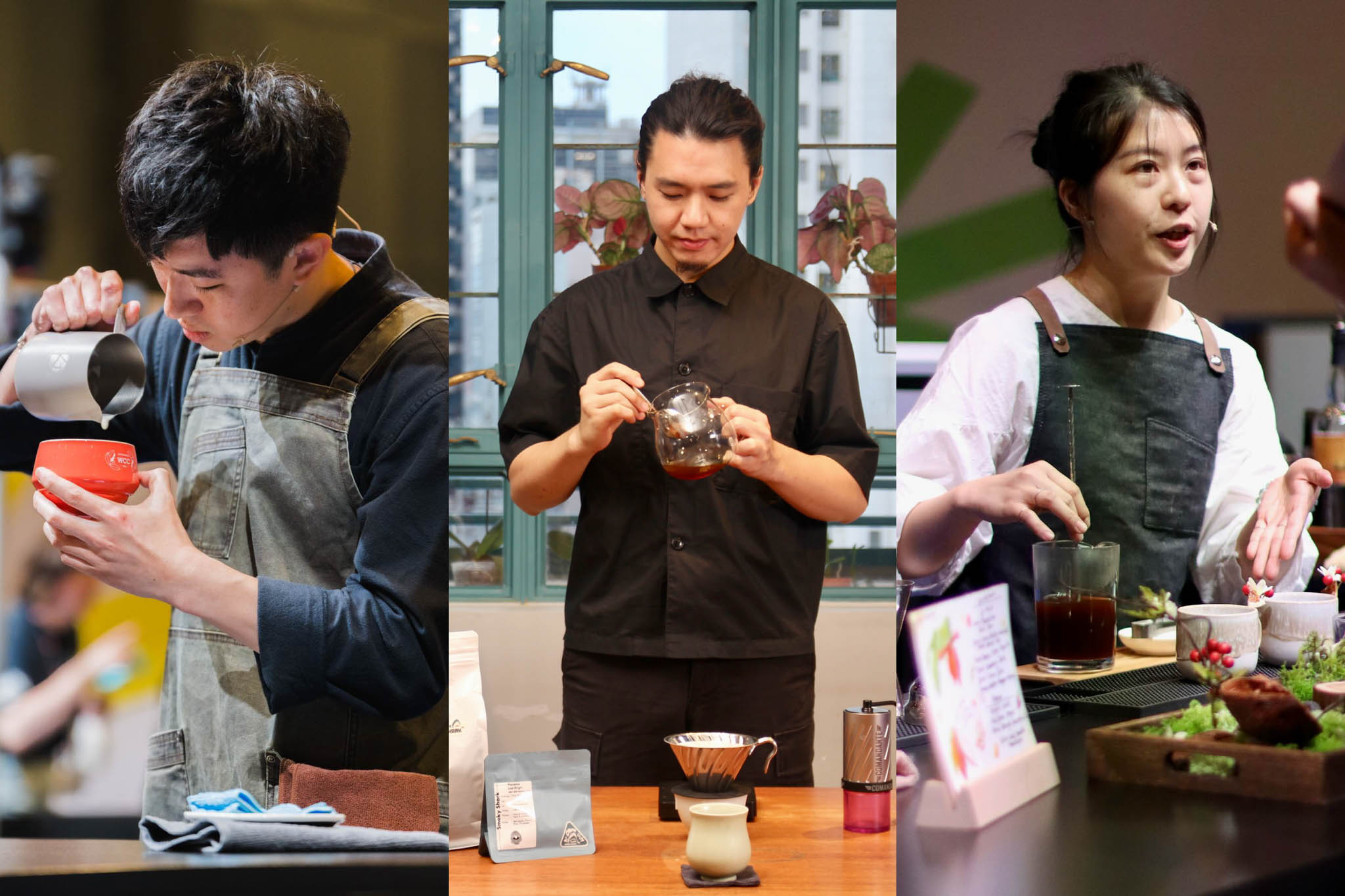
From left: Ah Kwan (Champion of Hong Kong Latte Art Championship 2024), Jaco(First Runner up,World Cup Tasters Championship 2022, First Runner up, Hong Kong Brewers Cup 2024)and Chloe (Champion of Hong Kong Coffee in Good Spirits Championship 2023)
Jaco and Chloe worked part-time at Pacific Coffee when they were in college. Ah Kwan, who majored in humanities at university, mentioned that his final year project was about coffee shop franchises. He emphasized the significance of coffee shop franchises in Hong Kong and worldwide, as they help people understand the true essence of coffee.
He reminisced that his first taste of coffee, other than canned Nescafé, was from Starbucks. During a time when specialty coffee was not yet popular in Hong Kong, Starbucks coffee symbolized a particular lifestyle. Jaco recalled, "At that time, people were more focused on the lifestyle it represented rather than the flavor and beans of the coffee, often opting for hazelnut lattes, which were more like a mixture of syrup and water."
Jaco noted that the local coffee industry has evolved significantly. 2010 there were only around a dozen specialty coffee shops, but the number increased even more after 2014.

Jaco started his career as a barista since 2017.
Since 2020, the first two years of the pandemic, specialty coffee shops boomed. Jaco and Ah Kwan estimate that more than 200 new shops opened each year. "I thought the specialty coffee culture was taking off! Now that the craze has passed, it might have been an illusion. At that time, people couldn't travel and stayed in Hong Kong to visit cafes, but did they like specialty coffee? That’s another story. "Jaco said.
Ah Kwan observed that some cafes began to close down last year. "Some shop owners didn't know much about coffee. Because they were very bored during the pandemic, they opened a cafe with many friends, each chipping in a little money to have fun and fulfill their dream of opening a coffee shop." Ah Kwan believed customers' spending habits had returned to normal after the pandemic, and they would rather spend their money traveling.
Perhaps the craze is gone, but during the pandemic, the “new normal” brought more people into specialty coffee, even though the craze has faded drastically. Ah Kwan specializes in latte art, provides training for coffee shops, and teaches classes. He mentioned that the most notable impact of the pandemic is the increased number of people signing up for his classes.
"Like yoga and calligraphy, many people started to learn new things during the pandemic simply because there was nothing else to do with that much spare time. People came to learn how to brew coffee and latte art." Jaco also said that the specialty coffee craze significantly affected the general public. "People in Hong Kong are quite familiar with specialty coffee because many tried and talked about it. Even high school students know about specialty coffee and some of them can tell the origin of the drinks.”

As the market situation in Hong Kong worsens, a new generation of baristas must find a way to move forward. Jaco said, "I have been asking myself the same question over and over: Where have the customers gone? Have they left Hong Kong amid an immigration wave, or what? These related to how the specialty coffee industry can survive." Ah Kwan added. "I think the coffee industry is facing a tough situation right now." Chloe, a fellow barista and Ah Kwan's girlfriend, has been working in the renowned Accro coffee shop for a few years already. Accro has many award-winning baristas and has been based in Yuen Long for over a decade. It was where Chloe first encountered specialty coffee when she was still a high school student, and she has become a regular customer since. Chloe witnessed Accro’s battle with rent increases and relocation, the pandemic, and the loss of customers due to the immigration wave. Accro stood the test of time, making Chloe agree with shop owner Ah Kin’s (Mok Wai-kin, the champion of the 2016 Hong Kong Brewers Cup Championship) motto, "Quality Speaks for Itself."
Chloe laughed and said, "I admire Ah Kin’s persistence. As a crew member at Accro, I noticed a decrease in customer numbers, especially during the boom in coffee shops or the recent immigration wave. Although I am worried about such a situation, and I know Ah Kin is concerned, he still encourages us to focus on making quality coffee, assuring us that customers will keep coming if we do so. I asked if we should also sell other drinks, but he declined." With Ah Kin’s encouragement, Chloe started participating in coffee competitions and was the champion of the Hong Kong Brewers Cup Championship in Good Spirits Championship 2023.

Chloe and Ah Kwan, the barista couple.

Chloe discovered the world of specialty coffee at Accro, while Jaco's journey began at Studio Caffeine where he was a long-time customer before becoming a barista. Jaco, along with friends, recently opened Smoky Shark Coffee, a specialty coffee shop focused on importing a wider selection of green coffee beans to Hong Kong. Now, Jaco's new plan is to co-manage this venture and expand its reach.
Jaco, the first Runner up of World Cup Tasters Championship 2022 and the first runner-up in the 2024 Hong Kong Brewers Cup, mentioned that he has been traveling to different countries to take part in coffee competitions. He's also been working on establishing a network for importing green coffee beans. Jaco noted that specialty coffee in Hong Kong is more expensive compared to many foreign countries. He hopes to eventually produce high-quality specialty coffee at an affordable price, around $30 HKD. In addition to importing coffee beans, Jaco is also researching ways to reduce the cost of specialty coffee.
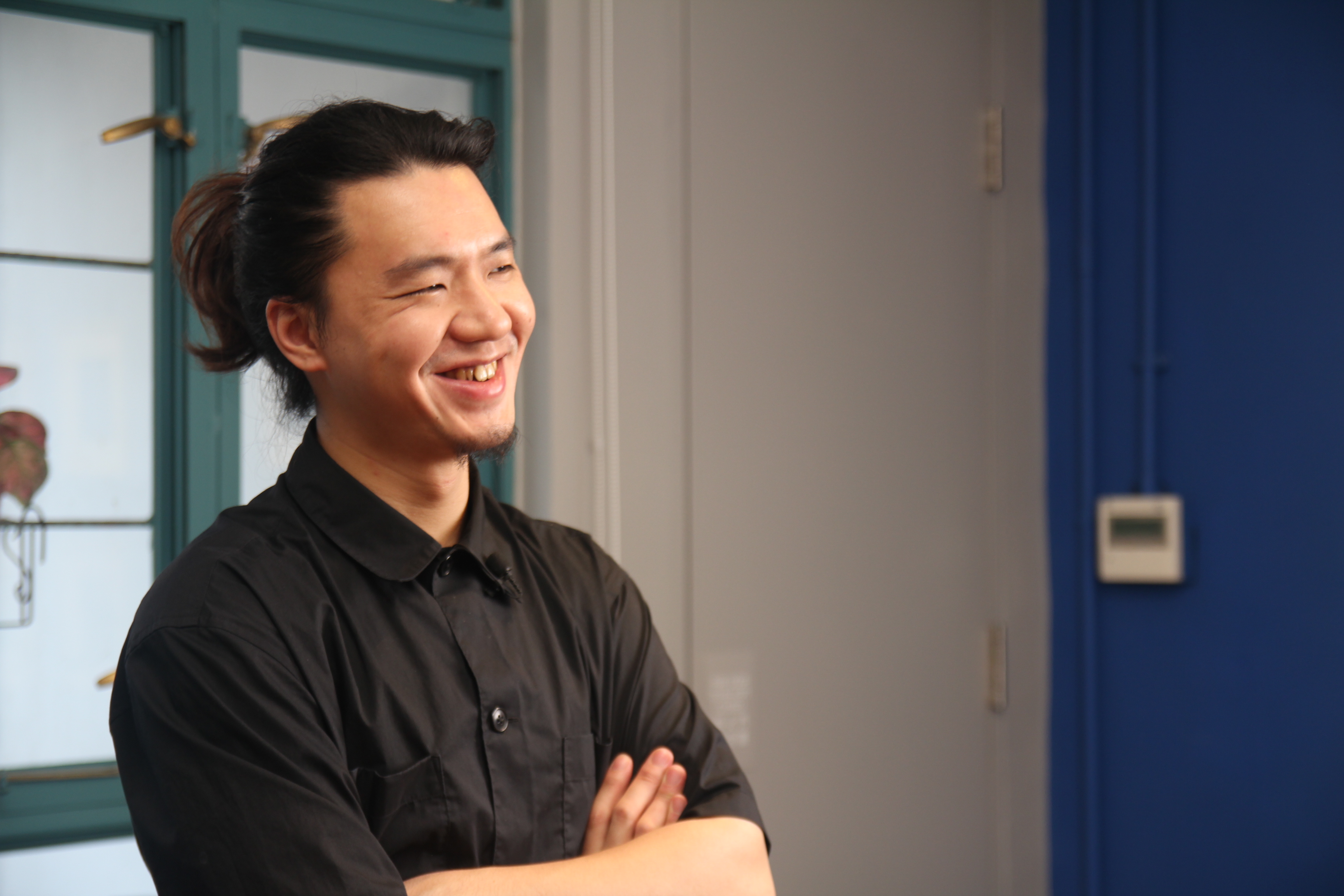
Ah Kwan realized that coffee in Hong Kong is expensive. After graduating from university, he went to Australia for a working holiday program and spent two years there learning to be a barista. During his time there, he discovered that coffee in Australia was much cheaper than in Hong Kong. He also noticed a coffee culture in which people see coffee shops as friendly places to drink coffee and chat with the barista. However, in Hong Kong, coffee is still considered a luxury product.
Having affordable coffee in Hong Kong is a dream that is not easy to accomplish. Therefore, we should continue promoting specialty coffee culture here." Ah Kwan is passionate about latte art and believes that this art can help promote the coffee culture. After all, what comes in sight for boutique coffee before how it tastes?
"I've heard this often - people say that latte art won't make the coffee taste better. Well, I think that's true. But latte art can make coffee more beautiful and marketable, which adds value." Ah Kwan was the champion of the Hong Kong Coffee Latte Art Championship in 2024. He often hosts latte art classes. His students are baristas, high school students, and middle-aged people. "I once taught a 78-year-old elderly. Regardless of age, people are so interested in latte art." Ah Kwan believes beautiful latte art attracts customers to take photos and post them on social media. Isn't it also good free publicity for specialty coffee shops?

Ah Kwan is passionate about latte art.

Ah Kwan’s latte art.

